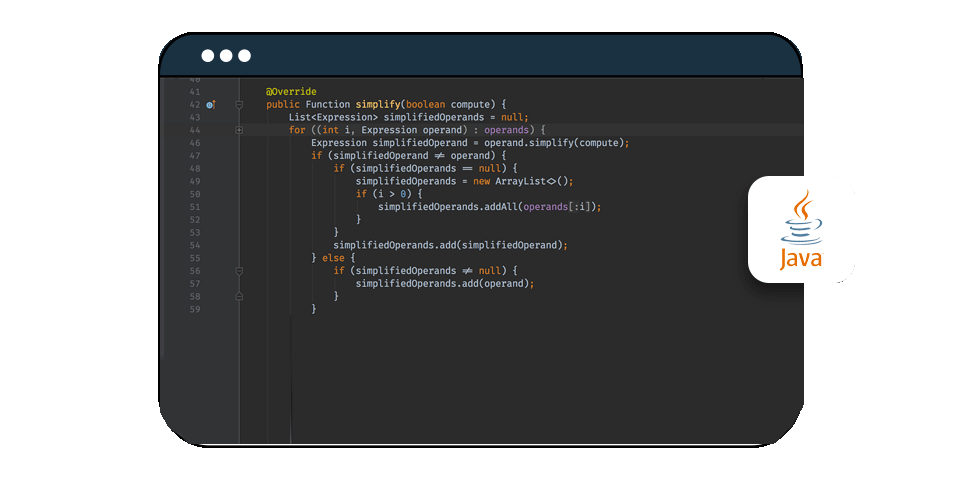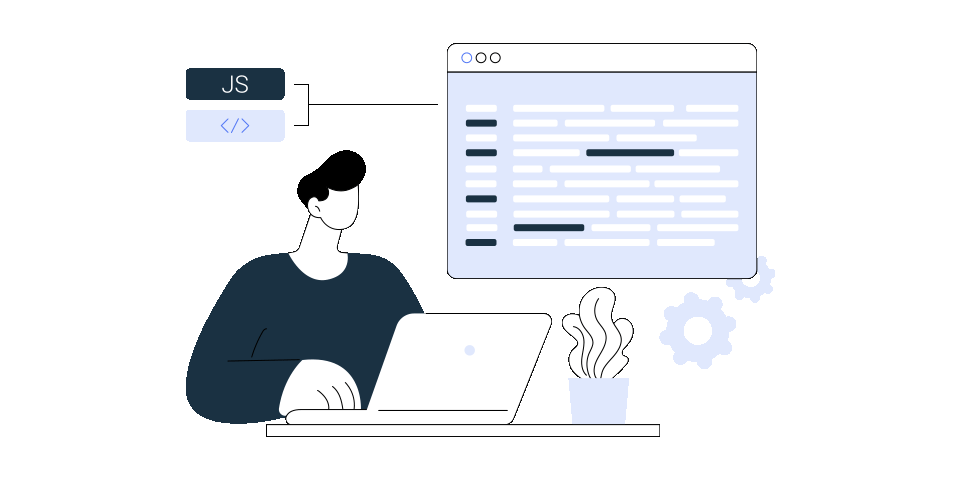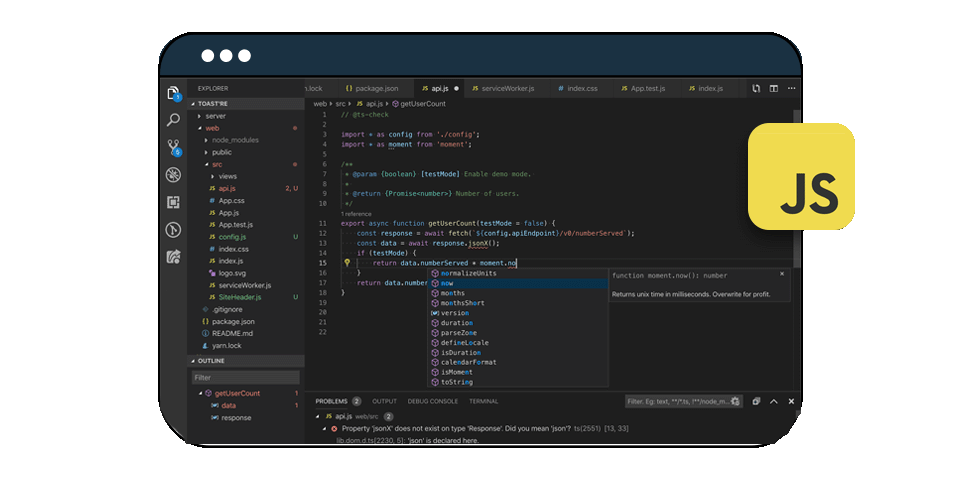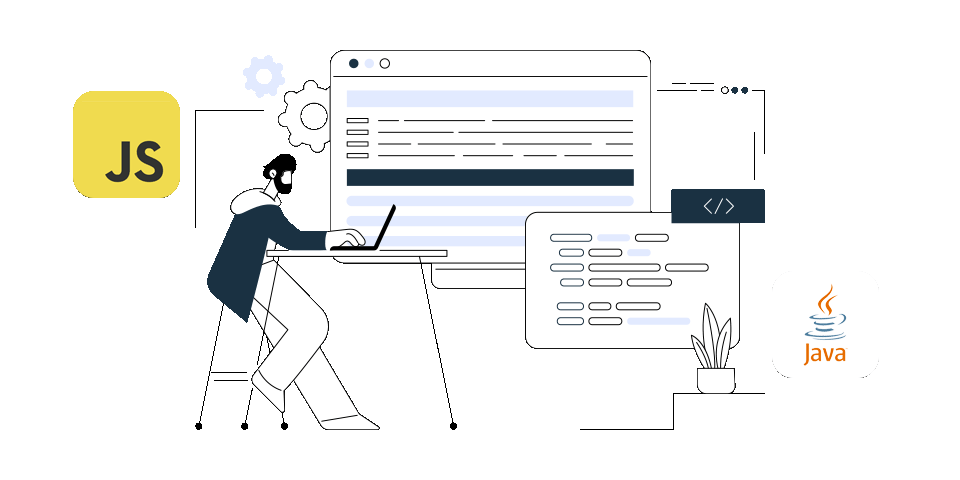To be fair, there is some complicated history between the two languages. Sun Microsystems created Java, an object-based language with statically defined syntax, which was first made available in 1995. Java was first created for television, but it later shifted its focus and gained popularity in server-side applications. Conversely, Javascript is an object-oriented scripting language with dynamic definition that was created by Netscape to enhance the interaction of web applications. In this article, we will talk about Java Vs. Javascript, and try to find answers to questions such as ‘what is the difference between java and javascript, is java and javascript same, which is best java or javascript’.
Table of Contents
About Java and Javascript
Technology advances quickly and is always changing. Nowadays, there are so many different computer languages in use that it is simple to become confused. When two languages have the same name, or at least portions of it, this is even more evident. This is the situation with Java and Javascript, two computer languages that are frequently misunderstood, particularly by individuals who are just starting to program. We will explain each and point out java vs javascript.
What Is Java?
Java is an object-based programming language with statically typed syntax. It is platform-independent since it can operate on a virtual machine (a Java virtual machine), which means it can run on any device because it can be run in a simulated virtual environment.
What does the term “statically typed” mean? A language with a strict syntax and statically-typed data must indicate the type of data that will be assigned to a variable at the time of definition.
What Is Java Used For?
Java may be used to construct almost every kind of application—desktop, mobile, games, website backend, servers, and even machine execution. Java is used by Wikipedia to run its search queries on its website and mobile app, and it even powers the rovers’ systems on Mars. Java is used in some capacity by a number of well-known internet businesses, including Netflix, Google, Twitter, and several others.
Advantages of Java
- Simple: Java is a basic programming language since it’s simple to pick up and comprehend.
- Object-oriented: Java is more useful since it follows an object-oriented paradigm.
- Secured: Because Java does not employ explicit pointers, it is a secure programming language.
- Robust: Because Java has good memory management, it is a resilient programming language.
Disadvantages of Java
- Learning takes a lot of time
- Slower than C++ and a few other computer languages
- High memory usage
- Complex syntax
What Is Javascript?
JavaScript is an object-oriented scripting language that is dynamically typed and runs within a computer’s browser. Every language with a more flexible syntax is considered dynamically typed. Since variables might be modified or reassigned at a later time, you do not need to define the kind of data that is assigned to them. Javascript was created as a scripting language with an emphasis on simplicity and portability. It was intended to function in combination with HTML and CSS to improve browser interactivity.
What Is Javascript Used For?
As of November 2023, 98.8% of all websites used JavaScript, according to W3Techs. First Site Guide states that there are already more than 1.98 billion webpages on the internet. It can transform a static webpage that looks like a brochure into an application that runs inside of your web browser.
However, it is not just for the front end. You should write JavaScript for the back end because it can run in Node contexts. It can serve as an API, handle controller tasks, route data, and do all of those things simultaneously. You can have a fully JavaScript stack using Node.
Advantages of Javascript
- Speed: Because JavaScript is an “interpreted” language, it requires less time to compile than other languages like Java.
- Reduces load on the server: Instead of operating on the server, the language runs on the client side. As a result, the server is spared the burden of running JavaScript.
- Ease of use: One of the easiest languages to learn is JavaScript, especially for web programming.
- Rich interface: Developers can create dynamic websites with a range of interface options available with JavaScript.
Disadvantages of Javascript
- Because customers can see the code, there is less security.
- Updated JavaScript features might not be supported by older web browsers.
- Requiring a lot of time to debug
What Are the Key Differences Between Java and Javascript?
Beyond just how they are executed differently, Java and JavaScript differ from one another. These characteristics distinguish these languages. For web development, the JavaScript language is usually utilized. To make the client-facing portion of static web pages more dynamic and interactive, developers add JavaScript code to them.
JavaScript is a human-language-like, comparatively light scripting language. The code of this object-oriented programming language is arranged around data structures, which are representations of actual objects.
JavaScript has a straightforward, unstructured syntax made up of variables and functions. In contrast, Java groups data into classes using a more structured syntax. A variable’s data type must be specified at the time of creation; it cannot be altered afterwards.
Conclusion: Java Vs. Javascript
In conclusion, despite having the same name, Java and JavaScript are two different languages with different features and uses. Java is an excellent language for developing a wide range of applications, from desktop software to enterprise-level systems, thanks to its statically-typed syntax and platform independence. However, JavaScript, a dynamically-typed programming language, is the industry standard for web development because it provides flexibility and interactivity for building dynamic web applications. It is essential that developers understand java and javascript differences in order to successfully use their respective capabilities in a variety of programming scenarios.
Artificial intelligence (AI) is a system that enables machines to perform human-like tasks, learn from experience and adapt to new inputs. However, ev...
Software development has become an important and indispensable profession with the advancement of technology day by day. Software goes beyond sectors,...
If you are interested in understanding differences in software development, you might also like our article on the Difference Between Front End & Back End.









No comments to show.